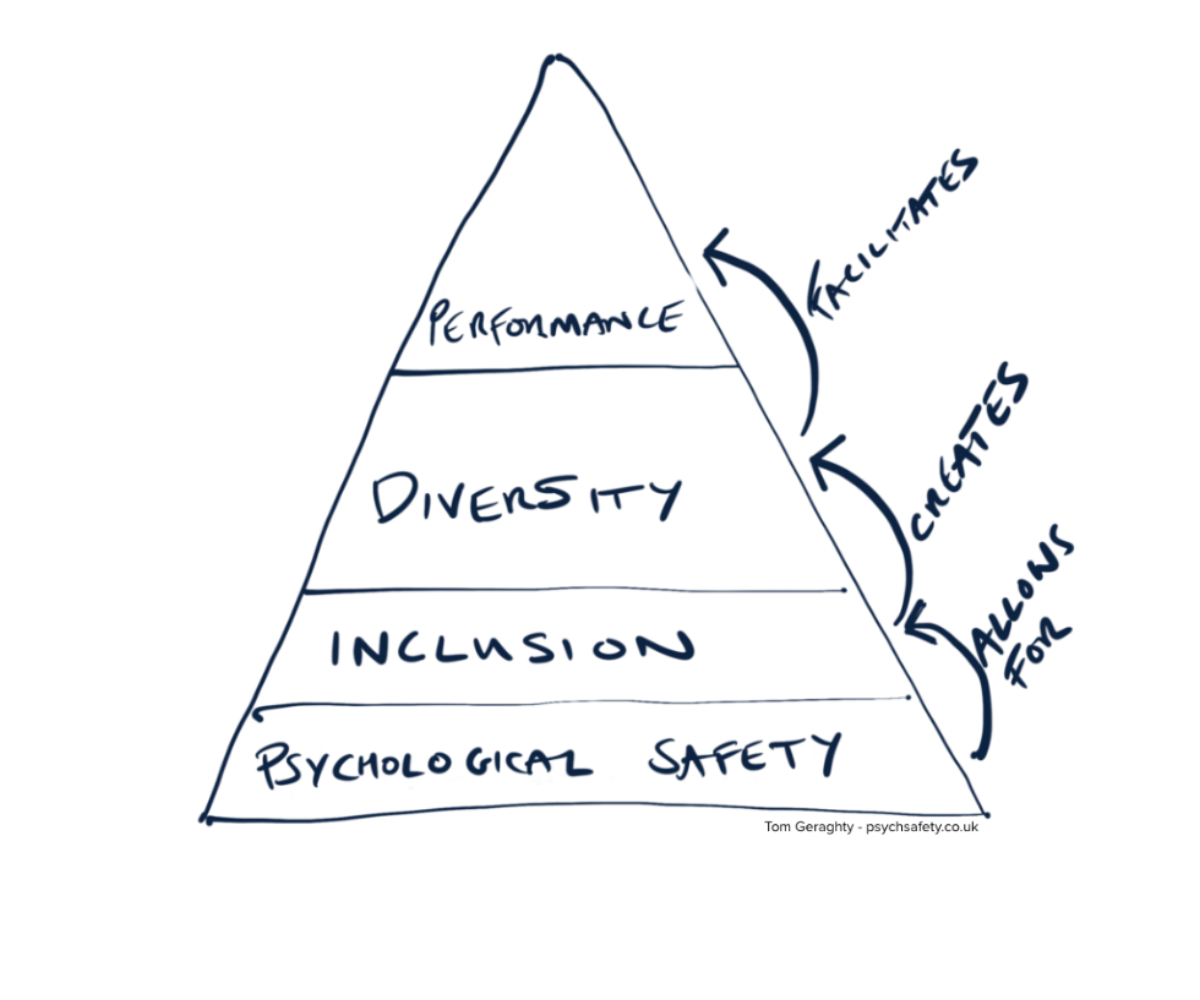By: Esther van der Sande
In our modern work environment, where productivity and performance often take centre stage, we sometimes forget the importance of simply allowing ourselves to be. Self-care and psychological safety are two sides of the same coin; the way we care for ourselves lays the foundation for how safe others feel around us. When we prioritize our own well-being, we create a stronger internal experience and a safe space for those around us.
However, self-care is not merely “doing something nice for oneself.” It is about taking responsibility for our own well-being—both physically and mentally. In my work as a consultant and trainer, I see daily how essential it is to respect our boundaries, pause mindfully, and cultivate resilience. When we care well for ourselves, we are far more present and supportive for others.
The Connection Between Self-Care and Psychological Safety
Psychological safety in the workplace is about fostering a culture where everyone feels heard, valued, and supported. But to create this culture, we must first begin with our own safety and sense of peace. Our internal experience—how we process emotions, thoughts, and stress—strongly influences how we engage with our surroundings.
An example from my own practice:
As a consultant, I once had days packed with back-to-back appointments, working through without paying attention to my own needs. This overloading led to moments when I became less patient and more easily frustrated with clients. It was only when I began to schedule short breaks and moments of reflection that I noticed a shift. I was calmer and more present in my sessions. This small act of self-care made my clients feel safer and more open to sharing their experiences without fear of judgment.
It all starts with a simple question:
How can I care for myself today, so I can offer a safe space to others tomorrow?
Self-Care as the Key to Resilience and Stability
When we make self-care a priority, it has a direct effect on our internal stability. It can be as simple as carving out a daily moment of reflection or organizing our day so we respect our boundaries. This inner calm allows us to respond resiliently to challenges without feeling overwhelmed.
Self-care strengthens our resilience—the ability to handle stress and uncertainty—and helps us remain balanced, both at work and beyond. This resilience is essential for psychological safety; it enables us to stay open to the experiences of others and to be a stable and supportive presence.
Self-Care Tips to Support Psychological Safety
- Plan Reflection Moments: Take five minutes each day to check in with yourself. How are you feeling? What emotions are present? By regularly reflecting, you can identify stress early on and manage it healthily.
- Set Boundaries: This sounds simple but can be challenging in practice. Be clear with yourself and others about what you can and cannot handle. Saying “no” at times is also a “yes” to your own well-being.
- Practize Resilience: Look back on challenges and accomplishments each day to learn from them. Building resilience helps us handle future stressful situations more effectively.
- Seek Support: Psychological safety also means having the courage to seek support when needed, without fearing it will be seen as a weakness. This could be as simple as checking in with a colleague or coach.
Self-Care in Action: A Practical Example
As an example, I’d like to share a story from a training session on psychological safety. One of the participants, a team leader, expressed that she found it challenging to give her best in a team where high expectations were constant. She often felt burnt out and noticed her patience waning with her team members. During the training, I discussed the importance of self-care and suggested she take a small moment each day to pause and breathe. A few weeks later, she shared that this simple shift made a significant difference. She felt more energized and noticed that her team became more open, simply because she was calmer and more present.
This story illustrates how small adjustments in self-care enable us to be a safe and stable presence for those around us. Ultimately, everyone benefits from an environment where we feel safe to share, to make mistakes, and to grow.
In Closing
Self-care and psychological safety are closely intertwined. When we invest in our own well-being, we lay the foundation for a culture where others feel safe and supported. By making small changes in how we care for ourselves, we can make a big impact on our surroundings.
It’s a beautiful invitation to ourselves: How can I lay the groundwork today for a safer and more inclusive tomorrow?
References
- Kabat-Zinn, J. (2005). Coming to our senses: Healing ourselves and the world through mindfulness. Hyperion.
- Edmondson, A. C., & Lei, Z. (2014). Psychological safety: The history, renaissance, and future of an interpersonal construct. Annual Review of Organizational Psychology and Organizational Behavior, 1(1), 23-43.






Leave A Comment